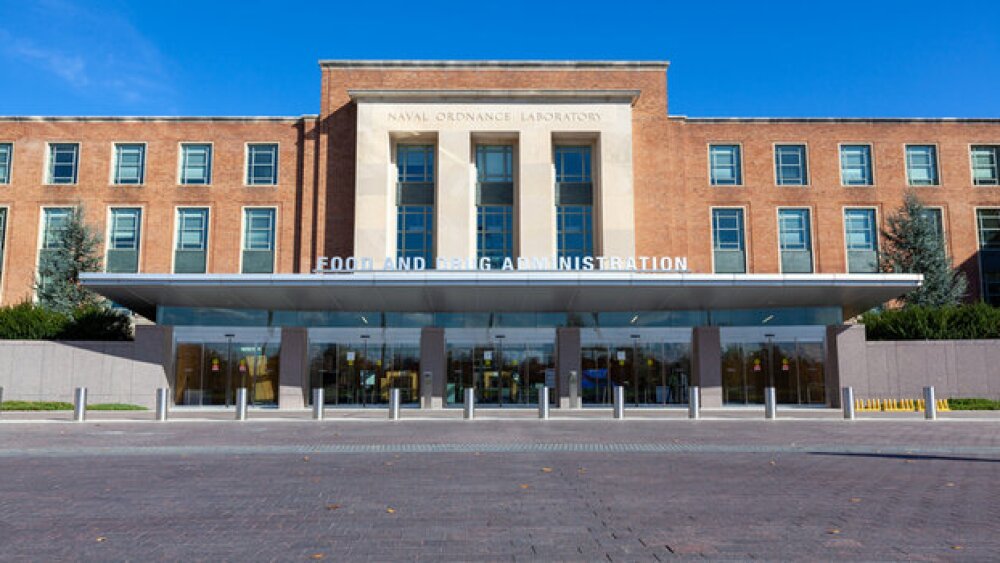Alongside the abrupt departure of Chinese biotech WuXi from BIO, Congress is rattling sabers over perceived national security implications of the U.S.’s R&D relationship with the country.
The future of Western cooperation in antibody-drug conjugate R&D in China is up in the air after a tumultuous first quarter that saw a very public separation between a key industry group and a major Chinese biotech company. Meanwhile, U.S. legislation that would bar federal funding from supporting “foreign adversary” biotech firms is advancing in Congress.
Last month, WuXi AppTec left the Biotechnology Industry Organization (BIO) after U.S. intelligence officials raised suspicion that the company had passed a U.S. client’s intellectual property to the Chinese government without consent. Almost concurrently, both houses of Congress took up the BIOSECURE Act, a bill intended to distance U.S. biomedical R&D from Chinese companies that may pose a national security risk.
Despite these high-profile tensions between the U.S. and China, biopharma is increasingly turning to Chinese partnerships for the development of antibody-drug conjugates (ADCs), a market that is projected to be worth nearly $30 billion by 2028. A January report from GlobalData counted 487 oncology-related strategic alliances and partnerships struck in China between 2019 and 2023, and the fraction of these deals that involved ADCs grew significantly over that time, accounting for nearly a quarter of last year’s collaborations.
Dowdy Jackson, former executive director of ADC biology at Chinese-owned Innovent Biologics who recently started a consultancy in the Washington, D.C., area, said drug companies have been drawn to China for ADC development because Chinese partners can move fast and do the work at fraction of the cost of U.S. and other Western entities. “I don’t anticipate it slowing down anytime soon,” Jackson told BioSpace.
How the political movement will affect this trend remains to be seen. Jake Van Naarden, president of Eli Lilly’s Loxo Oncology division, said that the company is not feeling direct pressure to divest from China. “We’re trying to be cautious about it,” Van Naarden told BioSpace. “A lot of things get discussed in politics and don’t end up happening, [so] I think you have got to be careful how much you react before things have happened.”
He did note that nearly all major pharma companies have contract relationships in China and cautioned against “[throwing] the baby out with the bathwater” by shutting down U.S.-China cooperation on ADC and other drug development.
Market Boom and Political Pushback
In a recent report, life sciences research firm Evaluate called ADCs “the hottest real estate in oncology,” highlighted by Pfizer’s $43 billion acquisition of Seagen last year. Much of this activity invovles companies in China. Roche forged a $1 billion licensing deal with Suzhou, China–based MediLink Therapeutics, for example, and BioNTech’s licensing agreements with DualityBio for three oncology ADCs collectively represent the largest oncology-specific ADC deal in China over the last five years, with a total value of $1.67 billion, Nelluri Geetha, an India-based pharma analyst at GlobalData, told BioSpace in an email.
At the same time, activity picked up on the BIOSECURE Act, bipartisan legislation introduced in Congress to avoid funding “foreign adversary biotech companies of U.S. national security concern,” according to the House Select Committee on the Strategic Competition Between the United States and Chinese Communist Party. Early last month, a Senate committee voted to advance the bill, which would effectively prohibit funding by National Institutes of Health grants and other federal sources from supporting partnerships with companies deemed to be a national security threat. Senate leadership has not set a date to consider the bill. Meanwhile, the House version of the legislation is still pending in the select committee, as Chairman Rep. Mike Gallagher (R-Wis.), a cosponsor of the bill, is resigning from Congress April 19.
On March 5, Gallagher wrote a letter to Attorney General Merrick Garland accusing BIO of advancing “the interest of the Chinese Communist Party” and raising “concerns that it is operating as an unregistered agent of a foreign principal” by lobbying on behalf of WuXi AppTec. Within a week, WuXi AppTec had resigned as a member of BIO, and BIO had publicly announced support for the BIOSECURE Act.
BIO did not respond to BioSpace’s request for comment.
Why Investment May Continue
Jackson said he understands the concern coming from Capitol Hill, but in working with Chinese counterparts, he has not personally seen instances “where they have willfully taken intellectual property and used it to the advantage of some company in China.”
Jackson sees the U.S.-China tension in the context of whether competition is fair. He noted that many Chinese companies—not just in biopharma—are “substantially subsidized” by the Beijing government, giving them an unfair advantage in the global market.
While tensions might be heightened because this is a presidential election year in the U.S., Jackson does not believe the issue will completely blow over after November. “I think there’s going to be ongoing scrutiny and concern,” he said.
Van Naarden did not specifically opine on the BIOSECURE Act, but cautioned against reactionary measures. “On one hand, the sanctity of our data and our intellectual property is paramount. We do everything we can to protect that within reason,” he told BioSpace. “That ‘within reason’ is important because [an abrupt change] will be incredibly disruptive to medicine creation and delivery in the United States.”
Neil Versel is the business editor at BioSpace. You can reach him at neil.versel@biospace.com. Follow him on LinkedIn or X. Heather McKenzie contributed to this story.





